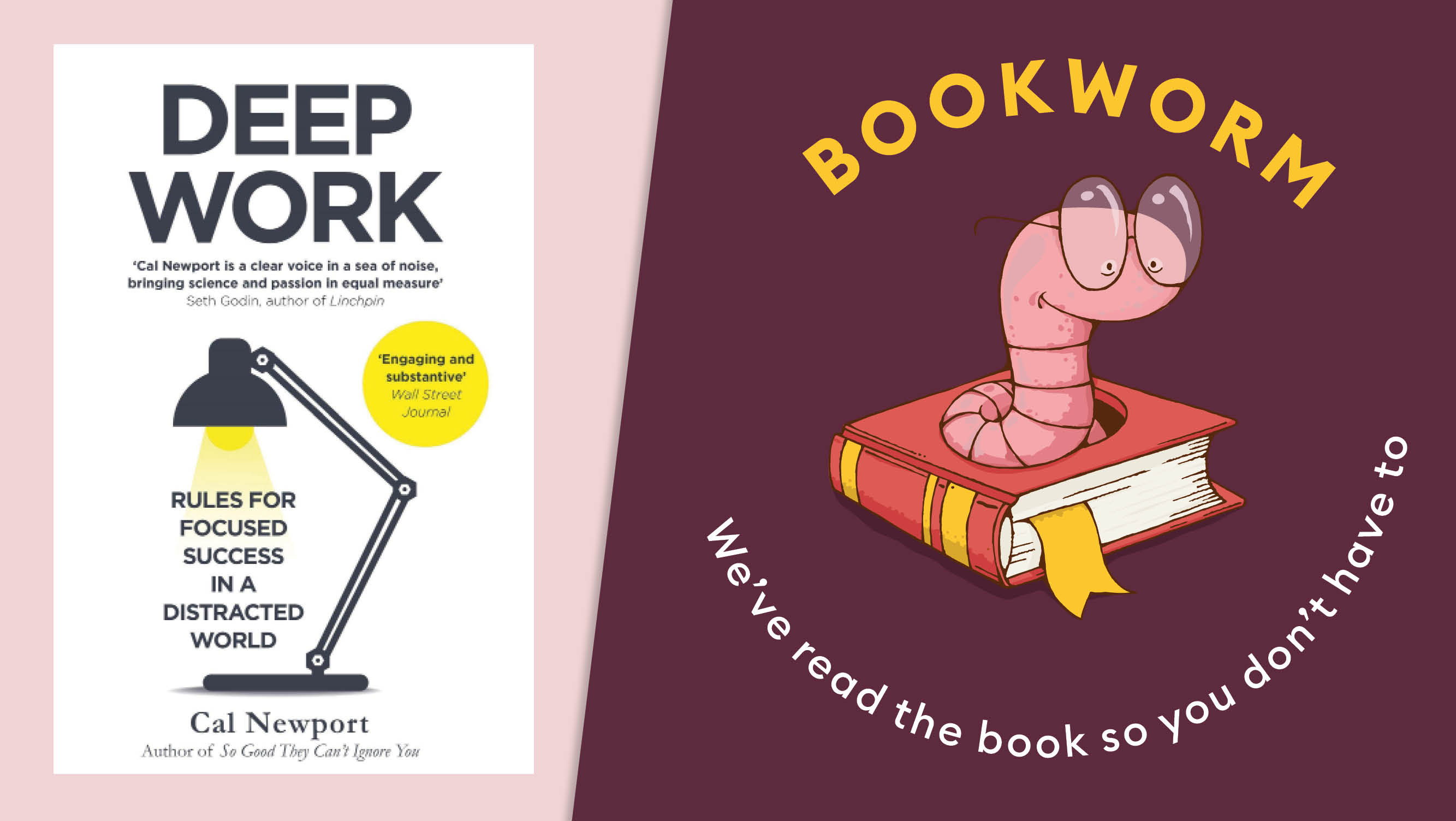Professor Cal Newport encourages us to create more time for ‘deep work’.
What’s this ‘deep work’ that Newport talks of?
By ‘deep work’ Prof Newport (a professor of computer science at Georgetown University in the US) is describing a professional activity that requires our full focus and concentration.
It’s the complex, thoughtful and creative work that is core to our business and our role, where we will reach our cognitive potential and find that elusive but desirable state of flow.
And what is it not?
It's not the bitty administrative tasks that clutter up our inboxes and take up so much of our time. That is shallow work, and while it may make us feel terribly busy and important, it’s not what we feel good about when we look back on our day, week or entire career.
What if I am not a deep thinker?
Think of ‘deep’ as meaning complex or difficult. In today’s world of work where employers can pick their team from a global pool (thanks to remote working), having a deep understanding and real expertise in our field is critical to standing out from the crowd.
So, how can we create more time for deep work?
Too often, we divide our attention between multiple simultaneous tasks, telling ourselves that we are being efficient, when we would actually achieve more if we completed tasks one at a time.
Is it possible to focus when we have so many competing demands?
The approach requires commitment and discipline, and it might mean saying “no” to things we’d normally agree to. The main idea is to be more aware and take more ownership of how we spend our time, so that we can minimise distractions and maximise our outputs.
Could you give me some examples?
Newport provides an excellent shopping list of ways in which we can increase our capacity for deep work:
1. Evaluate your tasks, habits and working styles against your goals and ambitions. Jettison tasks that don’t progress your ambitions, delegate work that can be done by others and recognise how you work best.
2. Explicitly delineate time for deep work. If you work best in fast, intense bursts, box out 60 minutes per day to wrestle with a knotty deep work problem. If your progress is slower and more meandering, give yourself a period of days or even weeks to focus on a task. Delineate time for shallow work, too, so you don’t feel anxious about when it will get done.
3. Remove distractions and extraneous activities. Reduce the amount of time you spend on your phone or on the internet. Lock your phone away; work from a notebook. Quit Twitter. Do whatever will protect you from the incessant pings and temptations.
4. Embrace boredom. At times when you feel like you’re bashing your head against the same old wall, you have actually reached peak focus. Don’t let yourself off the hook by becoming distracted and losing that focus. Stay in the zone and trust that the answer will come.
This approach is not for the feint-hearted, is it?
Taken literally, the approach could lead us all to a life of monasticism. But Newport’s aim is not purely to produce top executives; it is to help us all feel more fulfilled.
So, are there lessons here for life, as well as work?
Absolutely. The more time we spend practising or just thinking about things we actually care about, the happier and more productive we’ll be. TV and phone scrolling might feel relaxing but they have a negative impact on our world view and personal sense of purpose.
What am I most likely to say after reading this book?
“Silence is golden.”
What am I least likely to say after reading this book?
“If you want something done, ask a busy person.”
















